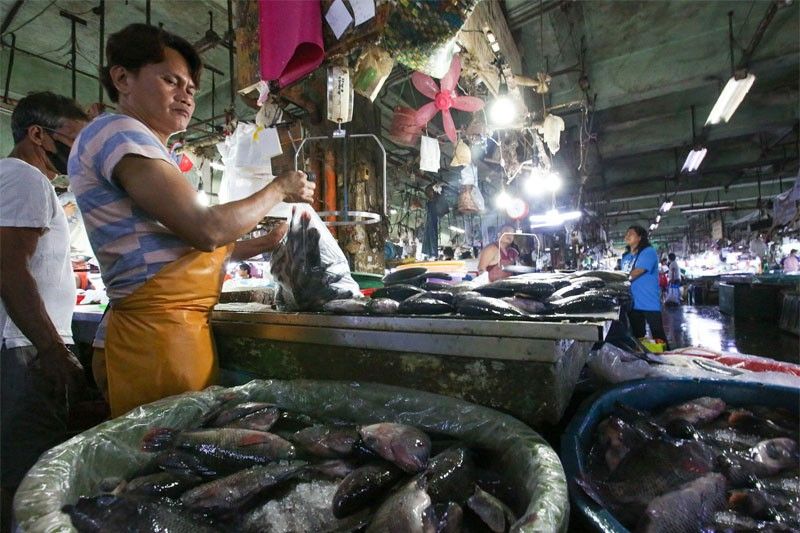BFAR takes steps to ensure stable fish supply

MANILA, Philippines — The Bureau of Fisheries and Aquatic Resources (BFAR) assured the public it has been taking steps to ensure an adequate supply of fish and other seafood products amid concerns over the reinstatement of Fisheries Administrative Order (FAO) No. 266.
In a statement, BFAR said fish prices are dependent on the sufficiency of fish supply, which the government ensures to provide enough through sustainable fisheries production programs.
These include the National Payao Program, National Lambaklad Program, National Mariculture Program, Legislated Hatcheries Program, fishing boat and gear distribution program, broodstock development and maintenance, fingerling production and distribution, fish cage distribution, as well as the operation and maintenance of technology stations, national centers and hatcheries.
BFAR also said it supports the implementation of FAO 266, mandating the installation of vessel monitoring measure (VMM) in commercial fishing vessels.
As a tool for monitoring, control, and surveillance, VMM can effectively help in the prevention, deterrence, and elimination of illegal, unreported, and unregulated fishing (IUUF).
This, even as it adheres to the memorandum from the Office of the Executive Secretary dated March 13, which suspended the implementation of the FAO 266 and directed all concerned government agencies, including the DA-BFAR, to strengthen the government’s response against IUUF.
As the primary government agency mandated to manage the country’s fisheries and aquatic resources, BFAR said it remains strongly committed to increasing production and ensuring fish sufficiency through sustainable means and without compromising the ecological integrity of the country’s aquatic and marine environment.
Earllier, the Alliance of Philippine Fishing Federations Inc. (APFFI) – the umbrella organization of various commercial fishing associations nationwide – warned that the implementation of FAO 266 could “wipe out the commercial fishing industry affecting food security as well as employment.”
“The country’s fish requirements will eventually join the basket of controversial basic products, e.g. rice, onions, garlic, sugar, beef, pork, chicken, among others,” the group said.
The APFFI was supported by the Inter-Island and Deep Sea Fishing Association, which is also bucking the implementation of FAO 266.
ISDFA director Roderic Santos warned that the cost of fish could soar to “astronomical” levels should the order be implemented, which could undermine the country’s push for food security.
“It will see many, if not all, commercial fishers not going to the sea and this will mean a shortage of fish. A shortage of fish will, of course, cause an increase in prices,” he said.
However, the Philippines Tuna Handline Partnership said the prolonged non-implementation of FAO 266 may jeopardize recent inroads that have been made to comply with international best practices on transparency and the sustainability of seafood exports to the European Union.
The group – composed of the Gulf of Lagonoy Tuna Fishers Federation Inc., the Occidental Mindoro Federation of Tuna Fishers Association, and the Philippine Association of Tuna Processors Inc. – is working to maintain its Marine Stewardship Council certification awarded in 2021.
“We are worried that the suspension of vessel monitoring measures to ensure transparency in fisheries will put our tuna exports at risk. We are continuously trying our best to comply with international standards of transparency and sustainable fishing practices to ensure that small-scale tuna fisherfolk can sustain the breakthrough we have achieved in reaching international export markets,” said Atenogenes Reaso of the Federation of Tuna Fishers.
- Latest
- Trending



























